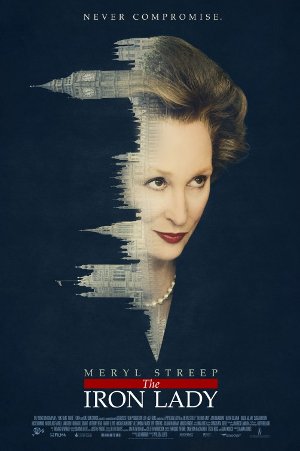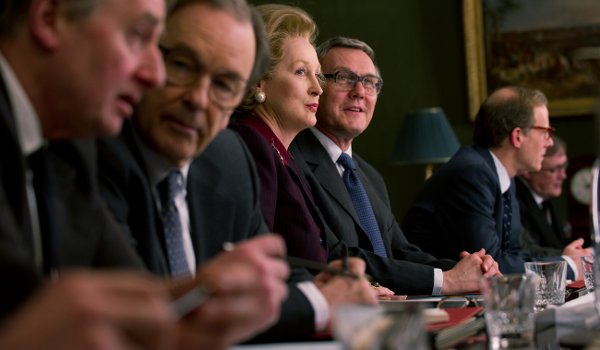- Title: The Iron Lady
- IMDb: link


The Iron Lady is as perplexing as it is forgettable. Coming off like a sanitized made-for-TV film that was given a bigger budget once it landed arguably the greatest living actress, the film is centered around some of the least important moments of one of the most important British politicians of the 20th Century. Like I said, perplexing.
In her waning days, after losing her husband, Margaret Thatcher (Meryl Streep) looks back on her career as she rose to power as Britain’s first female Prime Minister during one of the country’s most tumultuous periods. Despite detractors, and the fact that many of her monetary policies helped lead to high unemployment and social unrest (some of which is still felt today), the film certainly takes a pro-Thatcher stance.
The strangest choice the film makes is to center so much of the story around Thatcher’s days after her years in office. Yes we get flashbacks of her days in office, but except for a segment of the the film that deals with the Falklands War, they are short, fragmented, and don’t fit together all that well.
For a film that champions the woman Thatcher’s actual accomplishments, although mentioned, are given little screentime. Instead we get scenes after scene of her talking to her husband’s ghost (Jim Broadbent) or flashbacks of behind the scenes moments of campaign strategy. For a film that seems hellbent on championing the woman, The Iron Lady never finds a way to demonstrate how big of an event it was that Thatcher became Prime Minister.
Streep’s performance is certainly worth a look, although its not one of her best, but the film itself feels mostly like a waste of her talents. Broadbent works well as the as the ghost of her husband and I was impressed by Alexandra Roach‘s turn as a young Margaret Thatcher, but, again, they don’t lead to anything more than a collection of nice performances.

If you knew absolutely nothing about Margaret Thatcher going in you might, might leave with knowing slightly more. However, if you know even the basics (not even the details) of who Thatcher was there’s nothing here for you except an attempt to humanize a woman who, by all accounts, never wanted to be humanized in the public eye.
Fans of Streep may want to check this one out on DVD or cable but other than the performances there’s simply not enough here to recommend. Because it deals so little with Thatcher’s beliefs and policies, and is so historically bereft, it’s unlikely to find its also way into classrooms the way many other biopics of important historical figures often do.
Whether you agreed with Thatcher’s policies or not I think you can agree she deserved better than the muddled history The Iron Lady delivers. So does Streep. And, more importantly, so does the movie going audience.
